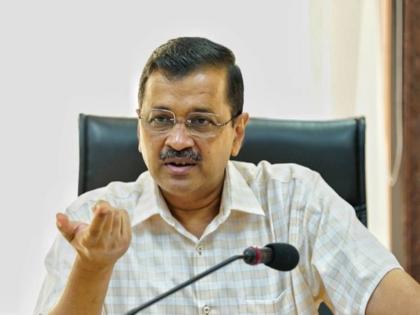Arvind Kejriwal Slams BJP After Supreme Court Overturns Outcome of Chandigarh Mayoral Poll
By Lokmat English Desk | Published: February 21, 2024 03:00 PM2024-02-21T15:00:00+5:302024-02-21T15:00:30+5:30
In the Delhi Assembly session on Wednesday, Arvind Kejriwal, Chief Minister and AAP convenor, criticized the BJP for the ...

Arvind Kejriwal Slams BJP After Supreme Court Overturns Outcome of Chandigarh Mayoral Poll
In the Delhi Assembly session on Wednesday, Arvind Kejriwal, Chief Minister and AAP convenor, criticized the BJP for the Supreme Court's decision to overturn the result of the Chandigarh mayoral election. Quoting from the Bhagavad Gita, Kejriwal said the god decided to intervene and put an end to the prevailing “adharm (unrighteousness)” of the Bharatiya Janata Party (BJP). He expressed gratitude towards the Supreme Court and the Chief Justice of India for their verdict on the Chandigarh mayoral election, emphasizing its significance in safeguarding democracy in the country.
Kejriwal praised the Supreme Court's decision to declare Kuldeep Kumar, the defeated AAP-Congress alliance candidate, as the new mayor of the Union Territory, describing it as if god were speaking through the CJI. This decision set aside the January 30 poll result. Criticizing the BJP, Kejriwal accused the party of resorting to any means necessary to secure election victories. He further alleged the BJP of openly engaging in MLA poaching and toppling governments.
Kejriwal remarked that the support of devotees of Lord Ram, Krishna, and Shiv-Parvati stands with the nation, emphasizing that the BJP's "adharm" will eventually cease, making way for righteousness ("dharm") to prevail.
Additionally, Kejriwal criticized the BJP for its handling of the ongoing farmers' protest, alleging that the party obstructs the farmers from reaching Delhi. He questioned their reluctance to allow the farmers into the capital, pointing out the lack of fair crop prices and unwillingness to heed their demands.
Open in app